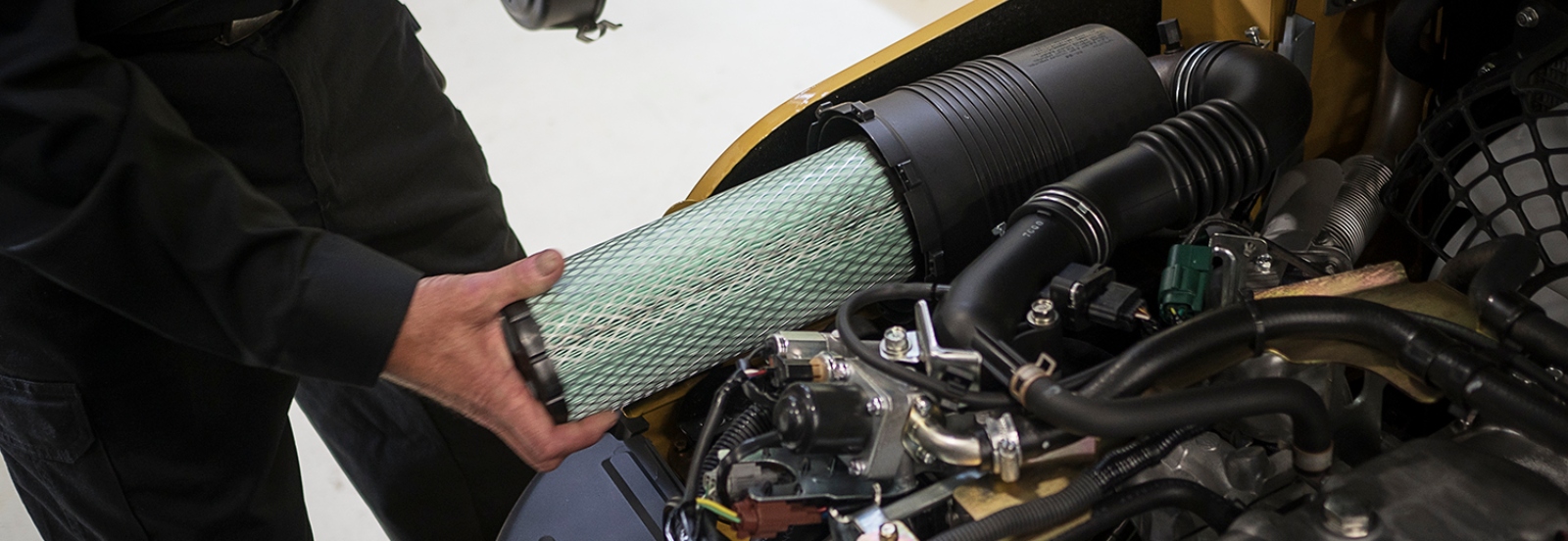
The Latest
How Often Should You Service Your Forklift?
It’s commonly understood that any vehicle you use regularly requires service from time to time. You know how often to have your car’s oil changed, and your driver’s manual will tell you the intervals for service based on mileage. Your fleet of forklifts should be treated no differently.
OSHA requires operators to inspect their forklifts at the end of each shift. Other OSHA requirements are detailed under compliance section 1910.178(q), but the overall guideline is that forklifts should not be used if they’re not in safe operating condition. OSHA guidelines and requirements should be followed as you determine how often to service your forklift, but there are other factors to consider as well. Generally, forklift maintenance is scheduled based on usage and time intervals. While time intervals are measured in days and months, usage intervals are based on pedal or key hours. Electric lift trucks require preventive forklift maintenance based on the run time of the hydraulic/drive motor, while LP forklift hours are based on the time the key switch has spent in the on position. Electric forklift engines also require less maintenance than internal combustion engines.

For regular internal combustion engine planned maintenance:
- Blow out radiator core and clean machine with compressed air
- Clean grease fittings and lubricate machine
- Change engine oil and filter, fuel filter if diesel
- Inspect condition and verify functionality of all safety components
- Check operation of unit
- Check all components of cooling system and verify coolant level
- Inspect drive train system and verify operation
- Inspect hydraulic cylinders, hoses and mast components
- Inspect fuel and exhaust systems
- Inspect tires
At 1,000 hours:
- Replace air filter and tune up unit
- Clean vaporizer and inspect fuel system
- Replace transmission fluid and filter
- Check differential oil and brake fluid condition
- Load test battery and check charging system
- Check emission system
- Replace hydraulic return filter
At 2,000 hours:
- Replace hydraulic pick up filter and oil
- Replace coolant
- Replace LPG fuel filter
For regular electric engine planned maintenance:
- Clean machine with compressed air
- Clean grease fittings and lubricate machine
- Inspect condition and verify functionality of all safety components
- Check operation of unit
- Check differential oil level, drive motor/motors, and all mounting
- Inspect hydraulic cylinders, hoses and mast components
- Inspect hydraulic and steering motors
- Inspect battery, cables, connector, water system, and blinky light
At 1,000 hours:
- Check differential oil and brake fluid condition
- Perform battery cell voltage test
- Replace hydraulic return filter
At 2,000 hours:
- Replace hydraulic pick up filter
- Replace hydraulic oil
Keeping up with your lift truck’s planned maintenance can improve the performance and increase the longevity of your equipment. It’s important to note, though, that older machinery with heavy usage may need expanded maintenance. Be sure to keep comprehensive service records and be prepared to show them to OSHA if required.
Since 1938, Fraza has been working to provide the best materials management solutions in the industry. Since its humble beginnings repairing large trucks and hydraulics at a small garage in Detroit, this family-owned shop has grown into a full-service material handling business. Our highly-skilled team of 200 employees spans a wide geography in Michigan, helping our customers become more efficient, productive, and connected to technology. Our driving commitment is exceptional service, and we strive to provide our customers with the tools, technologies, and best practices they need for maximum efficiency. For more information call 800.954.5553 or contact us through our website.